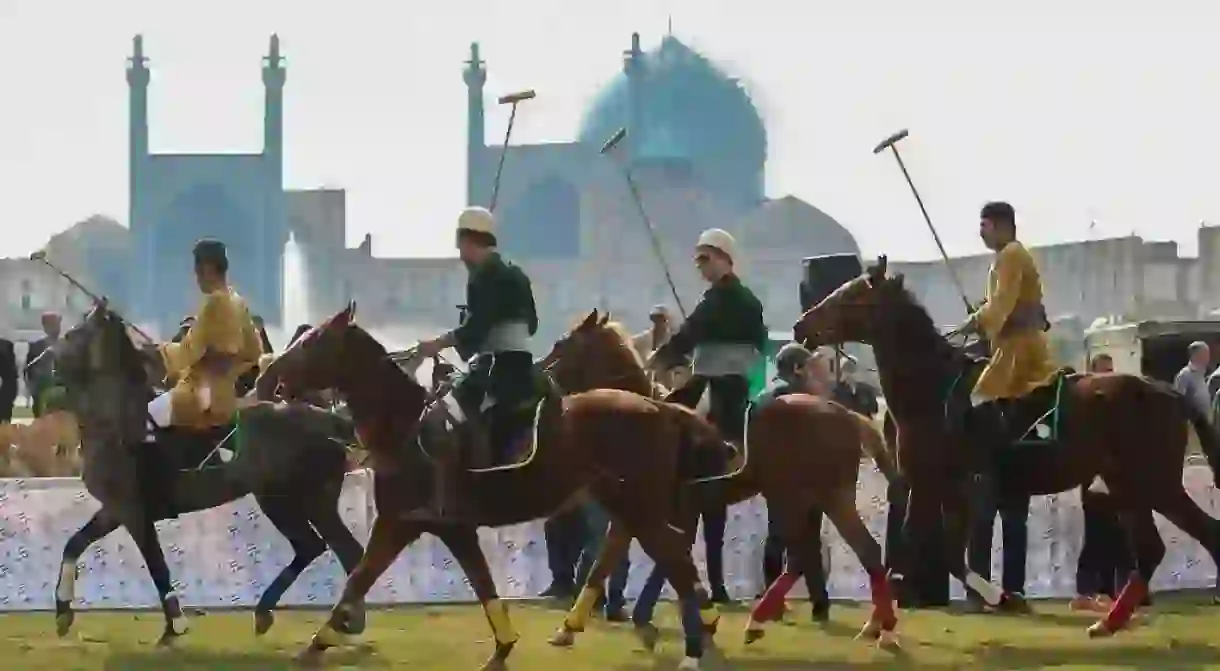Chovgan: Azerbaijan's Thrilling National Sport

Azerbaijan’s national sport, known as Chovkan or Chovqan, has been played by skilled horsemen for centuries on the flat, grassy plains of Azerbaijan, Iran, Uzbekistan and Tajikistan. But the polo-like game played to traditional folk music isn’t just for entertainment, it also comes with deep cultural roots.
What is Chovgan?
Believed to have originated more than two millennia ago, with its first official mention in the 7th century, the game Chovkan has withstood the test of time. Put into context, the world’s favourite sport today, football, dates to the middle 1800s. This game, sharing resemblances to polo and played on horseback, is Azerbaijan’s most famous national sport. Named after a type of curved stick traditionally used to catch sheep, Chovgan is played by farmers on Karabakh horses. The skilled horsemen dress in a long, tight-fitting coat, a particular type of trousers and a traditional astrakhan hat. Deep cultural ties date back to the nomadic roots of their ancestors. In ancient times, playing Chovgan was a way to train the cavalry. Today, it’s an Azerbaijani heritage that time is slowly eroding.
This is what Azerbaijan’s Chovgan is like.
How to play Chovgan: Azerbaijani polo
Two teams of five on horseback compete on a flat, grassy field. The objective is to hit a type of ball through a three-metre (10 feet) goal using a wooden mallet. Each team has two fullbacks and three forwards. The fullbacks act as defenders and are unable to leave their area on the field, while the forwards try to score from outside the penalty area. Over the years, the rules, dimensions of the playing area and the size of the goalposts have changed. But one thing remains: a type of folk music called janghi that serenades the Chovgan players.
Modern-day Chovgan
Chovgan sadly declined under the Soviet Union (1920-1991) to the point of almost being lost. Ancient games celebrating nomadic and historical heritage didn’t fit in with the Soviet way of life and were banned. After regaining their independence in 1991, an effort was made to rekindle the sport. But Azerbaijanis faced several political and economic problems and Chovgan was the least of their concerns. Fortunately, Azerbaijan’s national game was reignited with the introduction of the President’s Cup in 2006. Eight teams from around the country head to the Republican Equestrian Tourism Centre near Sheki to play Chovgan every December.

The future of Chovgan
The future of Chovgan looks bleak in the 21st century. As rural Azerbaijanis prefer to move to the cities or have ambitions of living abroad, the sport faces a shortage of players. The younger generation is more interested in technology and social media than preserving an ancient tradition. For this reason, Chovgan was featured on the UNESCO List of Intangible Cultural Heritage in Need of Urgent Safeguarding since 2013.













